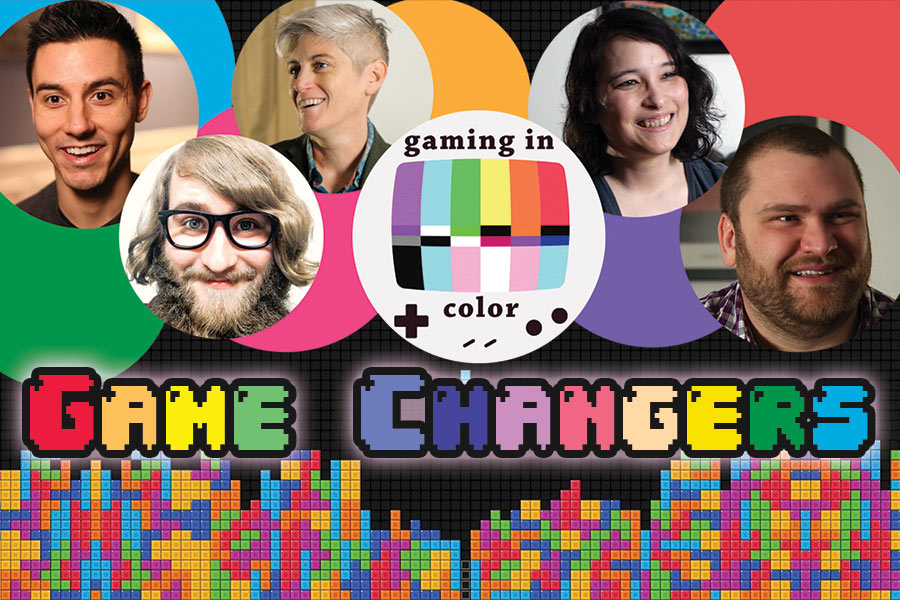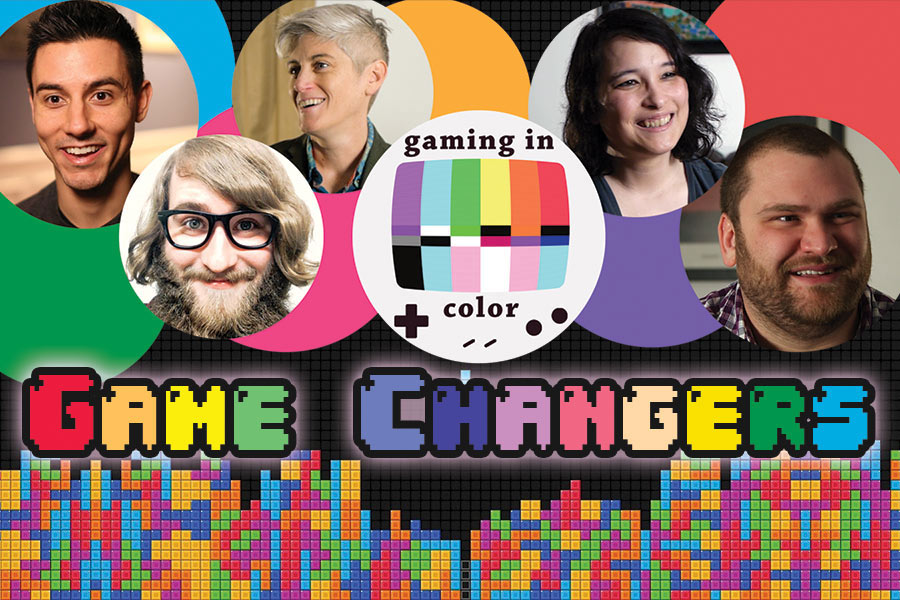
If you have ever found yourself wishing you could go on an adventure, wreak havoc or kick digital booty as a gay or lesbian character in blockbuster video games like “Call of Duty,” “Assassin’s Creed” or “Grand Theft Auto,” you are not alone.
A new documentary is exploring the challenges LGBT gamers face when seeking positive queer imagery, representation and even respect from the gaming industry.
“Gaming in Color,” funded by a successful Kickstarter campaign and released digitally, focuses on video-game culture, the queer gaming community (otherwise known as “gaymers”) and their struggles with the lack of LGBTQ characters and narratives in the gaming industry as a whole. The documentary features interviews with a number of queer-identified gamers from across the community.
Philip Jones, the film’s director, as well as a queer gamer and activist, said the response to the documentary, from people inside and outside of the gaming industry, has been overwhelmingly positive.
“I’ve been really surprised,” he said. “Even from people who aren’t gamers, when we’ve been screened at queer film festivals and for people who are not gay, it’s been really positive. We had a couple people that weren’t so receptive to it but that is just how the Internet is. We’ve put together the best possible film we can to explain our cause in a really relatable way. We’ve done the best we could to try to empower people to create their own spaces.”
In the past few years, popular mainstream and indie games have started to feature queer characters and increase the visibility and acceptance of LGBT gamers. However, games that feature LGBT content and characters can be difficult to single out and find casually.
“We’re starting to see it in a few of the games, maybe one or two a year, that have a queer character who is portrayed positively,” Jones said. “But no game is especially queer-friendly. There are smaller games that explore how queer people live their lives and the interaction that they have, but those are put out by the individual person so they are difficult to find and they are not being promoted are marketed. They have no budget so they aren’t really a commercial game.”
Jones added that, even with the strides that have been made, having more inclusive content and representation of queer and female characters is still an uphill battle in an industry that sees its main audience as heterosexual males.
“The way that the games have been marketed for so long as something for boys and men to enjoy has put them in a place where they see diversity as not profitable because the people who buy games, a lot of them would have a problem with it, or at least wouldn’t crusade for it,” Jones said. “They’re already getting the most out of games that they want because they are constantly being represented. More and more of us are seeing that video games are an art form. They are the natural next step in entertainment and interaction. Why shouldn’t that be for everybody? Why shouldn’t that be something that everybody can enjoy? Game-makers are starting to realize that they’ve put themselves in a bad position and are making it hard to cater to these types of people, by being stuck in this niche for so long. And the more that this subject continues to be brought up, the more that games can change and people can be more receptive to new ideas and new stories and welcoming new types of people to their community. We’re just waiting for one side to make the first move. For the larger industry, there is this trend towards advocacy. But there isn’t a large focus.”
For many, including people of color, women and members of the LGBT community, just being themselves — even in the virtual realm of a video game — can expose them to hostility, verbal abuse and harassment in social video-game environments, Jones said.
For many “gaymers,” the remedy for this problem is to form queer-friendly gaming circles and communities, as well as attend events like GX (formerly known as GaymerX), an annual convention focused on creating a safe space that includes panels geared toward gamers and “gaymers” of all identities.
“Gaymer” events and advocacy seem to be getting the attention of the larger gaming community. Some video-game makers have taken steps to curb homophobia and exclusion in their games and online communities, but Jones said there is a lot that LGBT gamers can do to change the course of gaming culture for the better.
“The best way to do that is to make games,” he said. “Things are becoming more progressive. There aren’t as many blockers that prevent queer people from entering the field. There are a lot of new tools and new systems that can be used to make games for people who don’t have a lot of experience; anybody can make a game at this point. The more that people can explore creating and expressing themselves through their own art in the games, the more it makes an impact when people start to pay attention. There are so many really diverse new ideas in the game scene right now and people are paying attention because it’s rapidly expanding. Within the communities, it can be scary and dangerous to out yourself and be vocally queer. So I think making games can be much more effective.”
Jones is GX’s convention organizer and assistant writer for upcoming cyberpunk gay-themed adventure game “Read Only Memories,” due out later this year. n
“Gaming in Color” is out now. For more information, visit www.gamingincolor.com.
For more information on GX3/GaymerX conventions, visit gaymerx.com.

